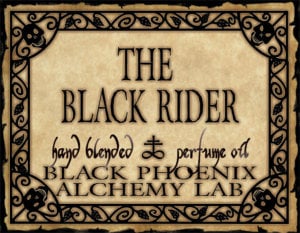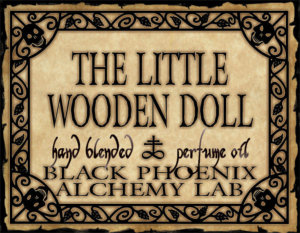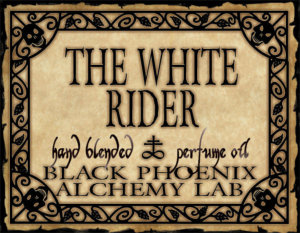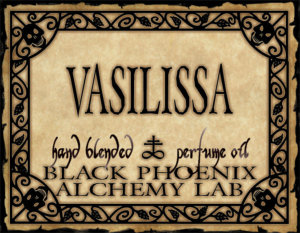There was once a very rich merchant, who had six children, three boys and three girls. As he was himself a man of great sense, he spared no expense for their education. The three daughters were all handsome, but particularly the youngest; indeed, she was so very beautiful, that in her childhood every one called her the Little Beauty; and being equally lovely when she was grown up, nobody called her by any other name, which made her sisters very jealous of her. This youngest daughter was not only more handsome than her sisters, but also was better tempered. The two eldest were vain of their wealth and position. They gave themselves a thousand airs, and refused to visit other merchants’ daughters; nor would they condescend to be seen except with persons of quality. They went every day to balls, plays, and public walks, and always made game of their youngest sister for spending her time in reading or other useful employments. As it was well known that these young ladies would have large fortunes, many great merchants wished to get them for wives; but the two eldest always answered, that, for their parts, they had no thoughts of marrying any one below a duke or an earl at least. Beauty had quite as many offers as her sisters, but she always answered, with the greatest civility, that though she was much obliged to her lovers, she would rather live some years longer with her father, as she thought herself too young to marry.
It happened that, by some unlucky accident, the merchant suddenly lost all his fortune, and had nothing left but a small cottage in the country. Upon this he said to his daughters, while the tears ran down his cheeks, “My children, we must now go and dwell in the cottage, and try to get a living by labour, for we have no other means of support.” The two eldest replied that they did not know how to work, and would not leave town; for they had lovers enough who would be glad to marry them, though they had no longer any fortune. But in this they were mistaken; for when the lovers heard what had happened, they said, “The girls were so proud and ill-tempered, that all we wanted was their fortune: we are not sorry at all to see their pride brought down: let them show off their airs to their cows and sheep.” But everybody pitied poor Beauty, because she was so sweet-tempered and kind to all, and several gentlemen offered to marry her, though she had not a penny; but Beauty still refused, and said she could not think of leaving her poor father in this trouble. At first Beauty could not help sometimes crying in secret for the hardships she was now obliged to suffer; but in a very short time she said to herself, “All the crying in the world will do me no good, so I will try to be happy without a fortune.”
When they had removed to their cottage, the merchant and his three sons employed themselves in ploughing and sowing the fields, and working in the garden. Beauty also did her part, for she rose by four o′clock every morning, lighted the fires, cleaned the house, and got ready the breakfast for the whole family. At first she found all this very hard; but she soon grew quite used to it, and thought it no hardship; indeed, the work greatly benefited her health. When she had done, she used to amuse herself with reading, playing her music, or singing while she spun. But her two sisters were at a loss what to do to pass the time away: they had their breakfast in bed, and did not rise till ten o′clock. Then they commonly walked out, but always found themselves very soon tired; when they would often sit down under a shady tree, and grieve for the loss of their carriage and fine clothes, and say to each other, “What a mean-spirited poor stupid creature our young sister is, to be so content with this low way of life!” But their father thought differently: and loved and admired his youngest child more than ever.
After they had lived in this manner about a year, the merchant received a letter, which informed him that one of his richest ships, which he thought was lost, had just come into port. This news made the two eldest sisters almost mad with joy; for they thought they should now leave the cottage, and have all their finery again. When they found that their father must take a journey to the ship, the two eldest begged he would not fail to bring them back some new gowns, caps, rings, and all sorts of trinkets. But Beauty asked for nothing; for she thought in herself that all the ship was worth would hardly buy everything her sisters wished for.“Beauty,” said the merchant, “how comes it that you ask for nothing: what can I bring you, my child?”
“Since you are so kind as to think of me, dear father,” she answered, “I should be glad if you would bring me a rose, for we have none in our garden.” Now Beauty did not indeed wish for a rose, nor anything else, but she only said this that she might not affront her sisters; otherwise they would have said she wanted her father to praise her for desiring nothing. The merchant took his leave of them, and set out on his journey; but when he got to the ship, some persons went to law with him about the cargo, and after a deal of trouble he came back to his cottage as poor as he had left it. When he was within thirty miles of his home, and thinking of the joy of again meeting his children, he lost his way in the midst of a dense forest. It rained and snowed very hard, and, besides, the wind was so high as to throw him twice from his horse. Night came on, and he feared he should die of cold and hunger, or be torn to pieces by the wolves that he heard howling round him. All at once, he cast his eyes towards a long avenue, and saw at the end a light, but it seemed a great way off. He made the best of his way towards it, and found that it came from a splendid palace, the windows of which were all blazing with light. It had great bronze gates, standing wide open, and fine court-yards, through which the merchant passed; but not a living soul was to be seen. There were stables too, which his poor, starved horse, less scrupulous than himself, entered at once, and took a good meal of oats and hay. His master then tied him up, and walked towards the entrance hall, but still without seeing a single creature. He went on to a large dining-parlour, where he found a good fire, and a table covered with some very nice dishes, but only one plate with a knife and fork. As the snow and rain had wetted him to the skin, he went up to the fire to dry himself. “I hope,” said he, “the master of the house or his servants will excuse me, for it surely will not be long now before I see them.”He waited some time, but still nobody came: at last the clock struck eleven, and the merchant, being quite faint for the want of food, helped himself to a chicken, and to a few glasses of wine, yet all the time trembling with fear. He sat till the clock struck twelve, and then, taking courage, began to think he might as well look about him: so he opened a door at the end of the hall, and went through it into a very grand room, in which there was a fine bed; and as he was feeling very weary, he shut the door, took off his clothes, and got into it.
It was ten o′clock in the morning before he awoke, when he was amazed to see a handsome new suit of clothes laid ready for him, instead of his own, which were all torn and spoiled. “To be sure,” said he to himself, “this place belongs to some good fairy, who has taken pity on my ill luck.” He looked out of the window, and instead of the snow-covered wood, where he had lost himself the previous night, he saw the most charming arbours covered with all kinds of flowers. Returning to the hall where he had supped, he found a breakfast table, ready prepared. “Indeed, my good fairy,” said the merchant aloud, “I am vastly obliged to you for your kind care of me.” He then made a hearty breakfast, took his hat, and was going to the stable to pay his horse a visit; but as he passed under one of the arbours, which was loaded with roses, he thought of what Beauty had asked him to bring back to her, and so he took a bunch of roses to carry home. At the same moment he heard a loud noise, and saw coming towards him a beast, so frightful to look at that he was ready to faint with fear. “Ungrateful man!” said the beast in a terrible voice, “I have saved your life by admitting you into my palace, and in return you steal my roses, which I value more than anything I possess. But you shall atone for your fault: you shall die in a quarter of an hour.”
The merchant fell on his knees, and clasping his hands, said, “Sir, I humbly beg your pardon: I did not think it would offend you to gather a rose for one of my daughters, who had entreated me to bring her one home. Do not kill me, my lord!”
“I am not a lord, but a beast,” replied the monster; “I hate false compliments: so do not fancy that you can coax me by any such ways. You tell me that you have daughters; now I suffer you to escape, if one of them will come and die in your stead. If not, promise that you will yourself return in three months, to be dealt with as I may choose.”
The tender-hearted merchant had no thoughts of letting any one of his daughters die for his sake; but he knew that if he seemed to accept the beast“s terms, he should at least have the pleasure of seeing them once again. So he gave his promise, and was told he might then set off as soon as he liked. “But,”said the beast, “I do not wish you to go back empty-handed. Go to the room you slept in, and you will find a chest there; fill it with whatsoever you like best, and I will have it taken to your own house for you.”
When the beast had said this, he went away. The good merchant, left to himself, began to consider that as he must die…for he had no thought of breaking a promise, made even to a beast…he might as well have the comfort of leaving his children provided for. He returned to the room he had slept in, and found there heaps of gold pieces lying about. He filled the chest with them to the very brim, locked it, and, mounting his horse, left the palace as sorrowful as he had been glad when he first beheld it. The horse took a path across the forest of his own accord, and in a few hours they reached the merchant’house. His children came running round him, but, instead of kissing them with joy, he could not help weeping as he looked at them. He held in his hand the bunch of roses, which he gave to Beauty saying, “Take these roses, Beauty; but little do you think how dear they have cost your poor father;” and then he gave them an account of all that he had seen or heard in the palace of the beast.
The two eldest sisters now began to shed tears, and to lay the blame upon Beauty, who, they said, would be the cause of her father’ death. “See,” said they, “what happens from the pride of the little wretch; why did not she ask for such things as we did? But, to be sure, Miss must not be like other people; and though she will be the cause of her father’s death, yet she does not shed a tear.”
“It would be useless,”replied Beauty, “for my father shall not die. As the beast will accept of one of his daughters, I will give myself up, and be only too happy to prove my love for the best of fathers.”
“No, sister,”said the three brothers with one voice, “that cannot be; we will go in search of this monster, and either he or we will perish.”
“Do not hope to kill him,” said the merchant, “his power is far too great. But Beautyâ’s young life shall not be sacrificed: I am old, and cannot expect to live much longer; so I shall but give up a few years of my life, and shall only grieve for the sake of my children.”
“Never, father!” cried Beauty: “If you go back to the palace, you cannot hinder my going after you; though young, I am not over-fond of life; and I would much rather be eaten up by the monster, than die of grief for your loss.”
The merchant in vain tried to reason with Beauty, who still obstinately kept to her purpose; which, in truth, made her two sisters glad, for they were jealous of her, because everybody loved her.
The merchant was so grieved at the thoughts of losing his child, that he never once thought of the chest filled with gold, but at night, to his great surprise, he found it standing by his bedside. He said nothing about his riches to his eldest daughters, for he knew very well it would at once make them want to return to town; but he told Beauty his secret, and she then said, that while he was away, two gentlemen had been on a visit at their cottage, who had fallen in love with her two sisters. She entreated her father to marry them without delay, for she was so sweet-natured, she only wished them to be happy.
Three months went by, only too fast, and then the merchant and Beauty got ready to set out for the palace of the beast. Upon this, the two sisters rubbed their eyes with an onion, to make believe they were crying; both the merchant and his sons cried in earnest. Only Beauty shed no tears. They reached the palace in a very few hours, and the horse, without bidding, went into the same stable as before. The merchant and Beauty walked towards the large hall, where they found a table covered with every dainty, and two plates laid ready. The merchant had very little appetite; but Beauty, that she might the better hide her grief, placed herself at the table, and helped her father; she then began to eat herself, and thought all the time that, to be sure, the beast had a mind to fatten her before he ate her up, since he had provided such good cheer for her. When they had done their supper, they heard a great noise, and the good old man began to bid his poor child farewell, for he knew it was the beast coming to them. When Beauty first saw that frightful form, she was very much terrified, but tried to hide her fear. The creature walked up to her, and eyed her all over…then asked her in a dreadful voice if she had come quite of her own accord.
“Yes,” said Beauty.
“Then you are a good girl, and I am very much obliged to you.”
This was such an astonishingly civil answer that Beauty’s courage rose: but it sank again when the beast, addressing the merchant, desired him to leave the palace next morning, and never return to it again. “And so good night, merchant. And good night, Beauty.”
“Good night, beast,” she answered, as the monster shuffled out of the room.
“Ah! my dear child,” said the merchant, kissing his daughter, ’I am half dead already, at the thought of leaving you with this dreadful beast; you shall go back and let me stay in your place.”
“No,” said Beauty, boldly, “I will never agree to that; you must go home to-morrow morning.”;
They then wished each other good night, and went to bed, both of them thinking they should not be able to close their eyes; but as soon as ever they had lain down, they fell into a deep sleep, and did not awake till morning. Beauty dreamed that a lady came up to her, who said, “I am very much pleased, Beauty, with the goodness you have shown, in being willing to give your life to save that of your father. Do not be afraid of anything; you shall not go without a reward.”
As soon as Beauty awoke, she told her father this dream; but though it gave him some comfort, he was a long time before he could be persuaded to leave the palace. At last Beauty succeeded in getting him safely away.
When her father was out of sight, poor Beauty began to weep sorely; still, having naturally a courageous spirit, she soon resolved not to make her sad case still worse by sorrow, which she knew was vain, but to wait and be patient. She walked about to take a view of all the palace, and the elegance of every part of it much charmed her.
But what was her surprise, when she came to a door on which was written, BEAUTY’S ROOM! She opened it in haste, and her eyes were dazzled by the splendour and taste of the apartment. What made her wonder more than all the rest, was a large library filled with books, a harpsichord, and many pieces of music.“The beast surely does not mean to eat me up immediately,” said she, “since he takes care I shall not be at a loss how to amuse myself.” She opened the library and saw these verses written in letters of gold on the back of one of the books:
“Beauteous lady, dry your tears,
Here’s no cause for sighs or fears.
Command as freely as you may, For you command and I obey.”
“Alas!” said she, sighing; “I wish I could only command a sight of my poor father, and to know what he is doing at this moment.” Just then, by chance, she cast her eyes on a looking-glass that stood near her, and in it she saw a picture of her old home, and her father riding mournfully up to the door. Her sisters came out to meet him, and although they tried to look sorry, it was easy to see that in their hearts they were very glad. In a short time all this picture disappeared, but it caused Beauty to think that the beast, besides being very powerful, was also very kind. About the middle of the day she found a table laid ready for her, and a sweet concert of music played all the time she was dining, without her seeing anybody. But at supper, when she was going to seat herself at table, she heard the noise of the beast, and could not help trembling with fear.
“Beauty,” said he, “will you give me leave to see you sup?”
“That is as you please,”answered she, very much afraid.
“Not in the least,”said the beast; “you alone command in this place. If you should not like my company, you need only say so, and I will leave you that moment. But tell me, Beauty, do you not think me very ugly?”
“Why, yes,” said she, “for I cannot tell a falsehood; but then I think you are very good.”
“Am I?” sadly replied the beast; “yet, besides being ugly, I am also very stupid: I know well enough that I am but a beast.”
“Very stupid people,” said Beauty, “are never aware of it themselves.”
At which kindly speech the beast looked pleased, and replied, not without an awkward sort of politeness, “Pray do not let me detain you from supper, and be sure that you are well served. All you see is your own, and I should be deeply grieved if you wanted for any thing.”
“You are very kind…so kind that I almost forgot you are so ugly,” said Beauty, earnestly.
“Ah! yes,” answered the beast, with a great sigh; “I hope I am good-tempered, but still I am only a monster.”
“There is many a monster who wears the form of a man; it is better of the two to have the heart of a man and the form of a monster.”
“I would thank you, Beauty, for this speech, but I am too senseless to say anything that would please you,” returned the beast in a melancholy voice; and altogether he seemed so gentle and so unhappy, that Beauty, who had the tenderest heart in the world, felt her fear of him gradually vanish.
She ate her supper with a good appetite, and conversed in her own sensible and charming way, till at last, when the beast rose to depart, he terrified her more than ever by saying abruptly, in his gruff voice,“Beauty, will you marry me!”
Now Beauty, frightened as she was, would speak only the exact truth; besides, her father had told her that the beast liked only to have the truth spoken to him. So she answered, in a very firm tone,“No, beast.”
He did not go into a passion, or do anything but sigh deeply, and depart.
When Beauty found herself alone, she began to feel pity for the poor beast. “Oh!” said she, “what a sad thing it is that he should be so very frightful, since he is so good-tempered!”
Beauty lived three months in this palace very well pleased. The beast came to see her every night, and talked with her while she supped; and though what he said was not very clever, yet, as she saw in him every day some new goodness, instead of dreading the time of his coming, she soon began continually looking at her watch, to see if it were nine o′clock; for that was the hour when he never failed to visit her. One thing only vexed her, which was that every night before he went away, he always made it a rule to ask her if she would be his wife, and seemed very much grieved at her steadfastly replying “No.” At last, one night, she said to him, “You wound me greatly, beast, by forcing me to refuse you so often; I wish I could take such a liking to you as to agree to marry you: but I must tell you plainly, that I do not think it will ever happen. I shall always be your friend; so try to let that content you.”
“I must,” sighed the beast, “for I know well enough how frightful I am; but I love you better than myself. Yet I think I am very lucky in your being pleased to stay with me: now promise me, Beauty, that you will never leave me.”
Beauty would almost have agreed to this, so sorry was she for him, but she had that day seen in her magic glass, which she looked at constantly, that her father was dying of grief for her sake.
“Alas!” she said, “I long so much to see my father, that if you do not give me leave to visit him, I shall break my heart.”
“I would rather break mine, Beauty,” answered the beast; “I will send you to your father’cottage: you shall stay there, and your poor beast shall die of sorrow.”
“No,” said Beauty, crying, “I love you too well to be the cause of your death; I promise to return in a week. You have shown me that my sisters are married, and my brothers are gone for soldiers, so that my father is left all alone. Let me stay a week with him.”
“You shall find yourself with him to-morrow morning,” replied the beast; “but mind, do not forget your promise. When you wish to return, you have nothing to do but to put your ring on a table when you go to bed. Good-bye, Beauty!” The beast sighed as he said these words, and Beauty went to bed very sorry to see him so much grieved. When she awoke in the morning, she found herself in her father’s cottage. She rang a bell that was at her bedside, and a servant entered; but as soon as she saw Beauty, the woman gave a loud shriek; upon which the merchant ran upstairs, and when he beheld his daughter he ran to her, and kissed her a hundred times. At last Beauty began to remember that she had brought no clothes with her to put on; but the servant told her she had just found in the next room a large chest full of dresses, trimmed all over with gold, and adorned with pearls and diamonds.
Beauty, in her own mind, thanked the beast for his kindness, and put on the plainest gown she could find among them all. She then desired the servant to lay the rest aside, for she intended to give them to her sisters; but, as soon as she had spoken these words, the chest was gone out of sight in a moment. Her father then suggested, perhaps the beast chose for her to keep them all for herself: and as soon as he had said this, they saw the chest standing again in the same place. While Beauty was dressing herself, a servant brought word to her that her sisters were come with their husbands to pay her a visit. They both lived unhappily with the gentlemen they had married. The husband of the eldest was very handsome, but was so proud of this, that he thought of nothing else from morning till night, and did not care a pin for the beauty of his wife. The second had married a man of great learning; but he made no use of it, except to torment and affront all his friends, and his wife more than any of them. The two sisters were ready to burst with spite when they saw Beauty dressed like a princess, and looking so very charming. All the kindness that she showed them was of no use; for they were vexed more than ever when she told them how happy she lived at the palace of the beast. The spiteful creatures went by themselves into the garden, where they cried to think of her good fortune.
“Why should the little wretch be better off than we?” said they. “We are much handsomer than she is.”
“Sister!” said the eldest, “a thought has just come into my head: let us try to keep her here longer than the week for which the beast gave her leave; and then he will be so angry, that perhaps when she goes back to him he will eat her up in a moment.”
“That is well thought of,” answered the other, “but to do this, we must pretend to be very kind.”
They then went to join her in the cottage, where they showed her so much false love, that Beauty could not help crying for joy.
When the week was ended, the two sisters began to pretend such grief at the thought of her leaving them, that she agreed to stay a week more: but all that time Beauty could not help fretting for the sorrow that she knew her absence would give her poor beast; for she tenderly loved him, and much wished for his company again. Among all the grand and clever people she saw, she found nobody who was half so sensible, so affectionate, so thoughtful, or so kind. The tenth night of her being at the cottage, she dreamed she was in the garden of the palace, that the beast lay dying on a grass-plot, and with his last breath put her in mind of her promise, and laid his death to her forsaking him. Beauty awoke in a great fright, and burst into tears. “;Am not I wicked,” said she, “to behave so ill to a beast who has shown me so much kindness? Why will not I marry him? I am sure I should be more happy with him than my sisters are with their husbands. He shall not be wretched any longer on my account; for I should do nothing but blame myself all the rest of my life.”
She then rose, put her ring on the table, got into bed again, and soon fell asleep. In the morning she with joy found herself in the palace of the beast. She dressed herself very carefully, that she might please him the better, and thought she had never known a day pass away so slowly. At last the clock struck nine, but the beast did not come. Beauty, dreading lest she might truly have caused his death, ran from room to room, calling out, “Beast, dear beast;” but there was no answer. At last she remembered her dream, rushed to the grass-plot, and there saw him lying apparently dead beside the fountain. Forgetting all his ugliness, she threw herself upon his body, and, finding his heart still beat, she fetched some water and sprinkled it over him, weeping and sobbing the while.
The beast opened his eyes: “You forgot your promise, Beauty, and so I determined to die; for I could not live without you. I have starved myself to death, but I shall die content since I have seen your face once more.”
“No, dear beast,” cried Beauty, passionately, “you shall not die; you shall live to be my husband. I thought it was only friendship I felt for you, but now I know it was love.”
The moment Beauty had spoken these words, the palace was suddenly lighted up, and all kinds of rejoicings were heard around them, none which she noticed, but hung over her dear beast with the utmost tenderness. At last, unable to restrain herself, she dropped her head over her hands, covered her eyes, and cried for joy; and, when she looked up again, the beast was gone. In his stead she saw at her feet a handsome, graceful young prince, who thanked her with the tenderest expressions for having freed him from enchantment.
“But where is my poor beast? I only want him and nobody else,” sobbed Beauty.
“I am he,” replied the Prince. “A wicked fairy condemned me to this form, and forbade me to show that I had any wit or sense, till a beautiful lady should consent to marry me. You alone, dearest Beauty, judged me neither by my looks nor by my talents, but by my heart alone. Take it then, and all that I have besides, for all is yours.”
Beauty, full of surprise, but very happy, suffered the prince to lead her to his palace, where she found her father and sisters, who had been brought there by the fairy-lady whom she had seen in a dream the first night she came.
“Beauty,” said the fairy, “you have chosen well, and you have your reward, for a true heart is better than either good looks or clever brains. As for you, ladies,” and she turned to the two elder sisters, “I know all your ill deeds, but I have no worse punishment for you than to see your sister happy. You shall stand as statues at the door of her palace, and when you repent of and have amended your faults, you shall become women again. But, to tell you the truth, I very much fear you will remain statues for ever.”
Traditional French fairy tale. Compiled by Walter Crane, The Fairy Book.
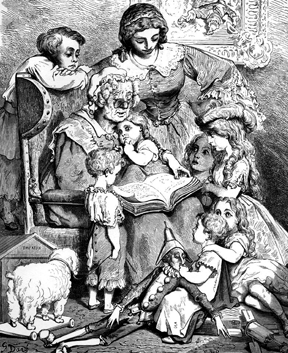
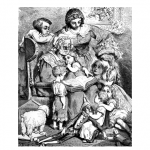
 Märchen
Märchen

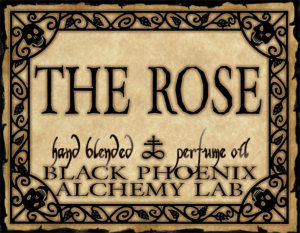
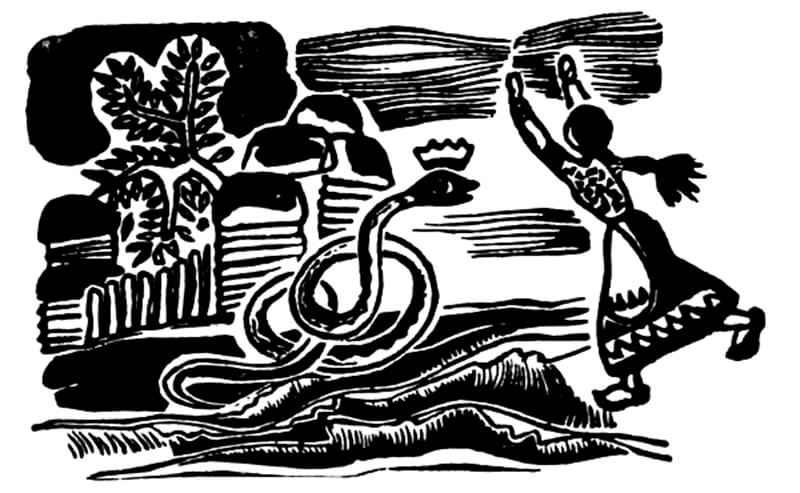 Märchen
Märchen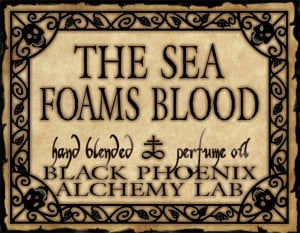
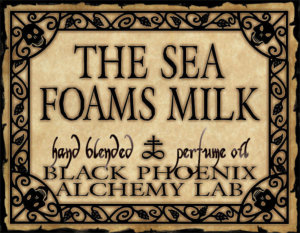
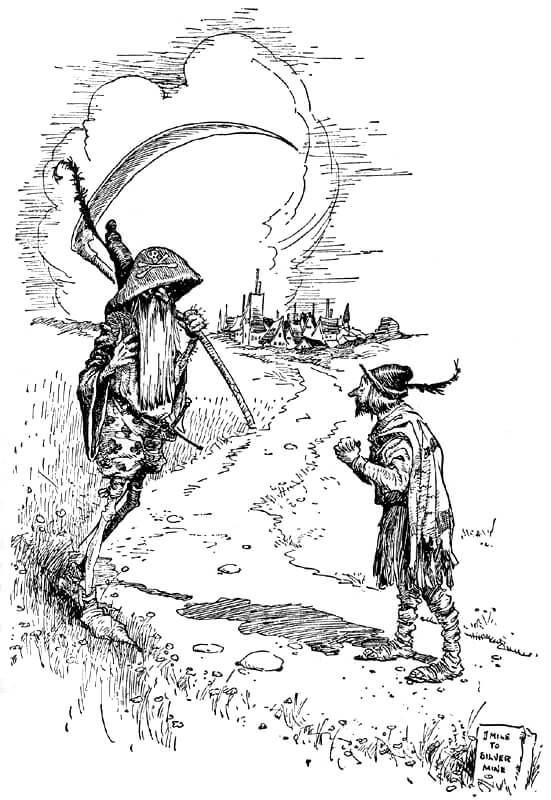 Märchen
Märchen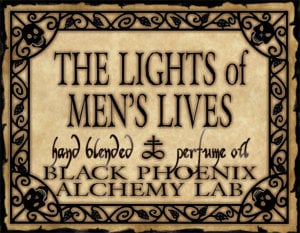
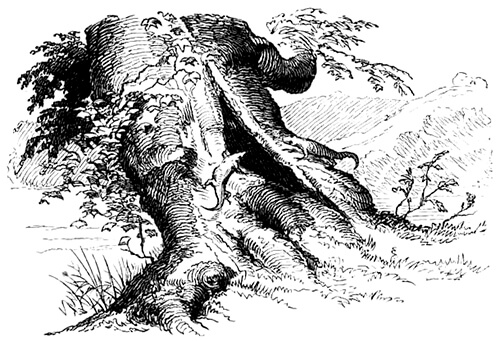 Märchen
Märchen
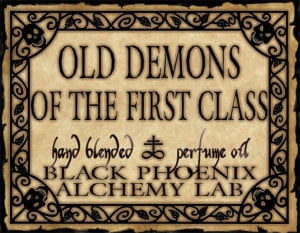
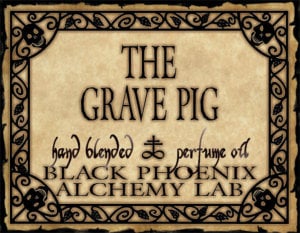
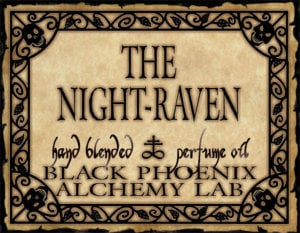
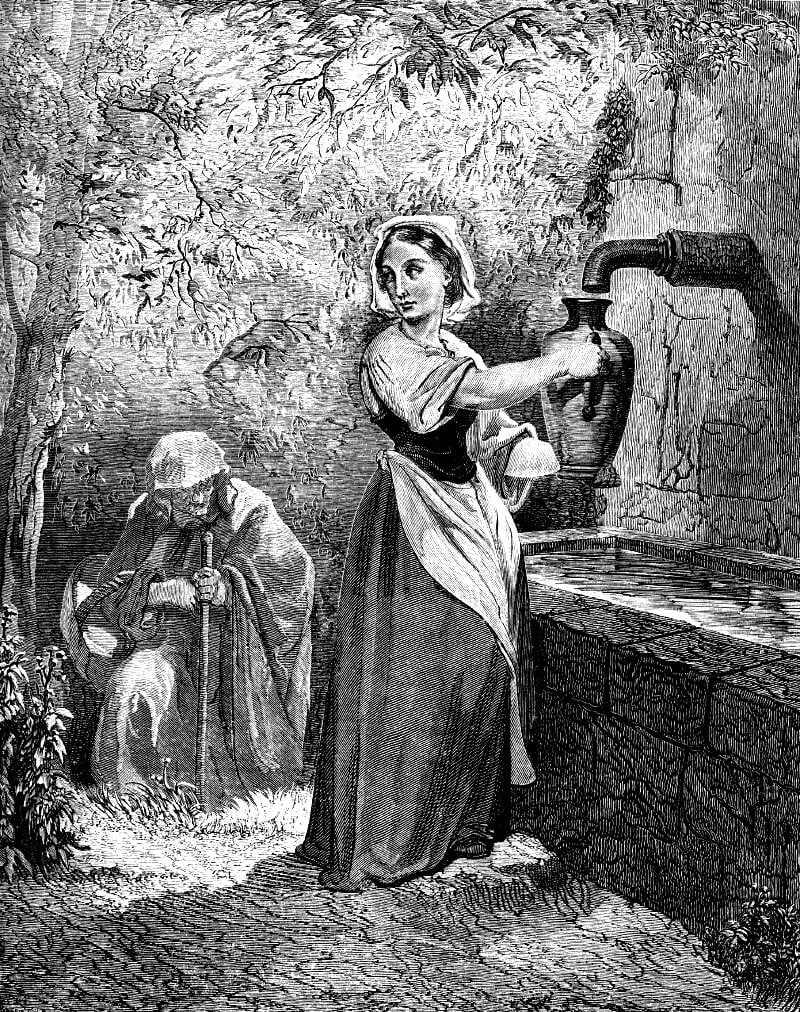 Märchen
Märchen
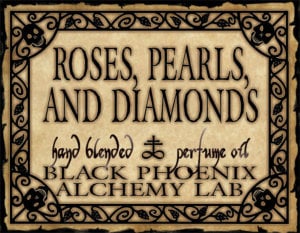
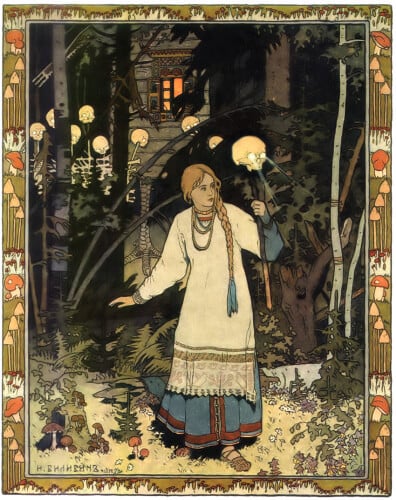 Märchen
Märchen
